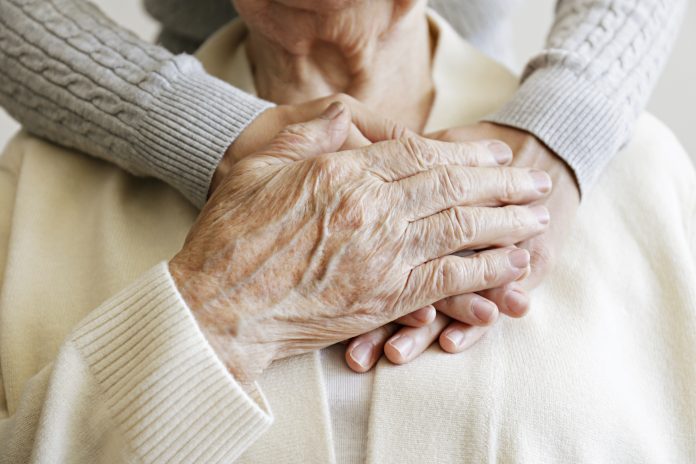Health
One in Five Dementia Patients Lack Essential Support, Report Reveals

A recent survey conducted by the Alzheimer’s Society has revealed alarming statistics regarding dementia care in the United Kingdom. The findings indicate that one in five individuals affected by dementia receives no health, social, or financial support. Additionally, less than half of those receiving assistance feel that their needs are adequately met, underscoring a critical need for improvements in services and public awareness.
The survey, which gathered insights from nearly 3,500 people affected by dementia—including individuals living with the condition, unpaid carers, and family members—paints a sobering picture of the current support landscape. The data highlights not only the gaps in care but also the increasing urgency for systemic changes to ensure that those living with dementia and their families have access to the necessary resources.
Gaps in Care and Support
The report emphasizes that a significant portion of the dementia population is left without essential support. According to Professor Fiona Carragher, Chief Policy and Research Officer at the Alzheimer’s Society, “Almost a million people are living with dementia, yet its scale and the day-to-day realities often remain hidden. Far too many people are going without the help they need—whether it’s support after a diagnosis, trained care professionals, or someone to turn to when things get hard.”
The survey highlights barriers that individuals face in obtaining a diagnosis and subsequent care. For instance, only one-third of participants reported a positive experience when receiving a dementia diagnosis. Key challenges included long wait times (52%) and having to see multiple healthcare professionals (41%). Furthermore, fewer than half of those diagnosed received information about the specific type of dementia they are facing, which is crucial for effective management and care.
Stigma and Awareness Challenges
The findings also reveal that stigma surrounding dementia may deter individuals from seeking the support they need. Nearly 42% of respondents indicated feelings of shame or being stigmatised due to their condition. This stigma could contribute to low diagnosis rates, as individuals fear the social repercussions of being diagnosed. The research found that 46% of respondents were unsure whom to contact for social care support, a figure that rose to 62% among ethnically diverse respondents.
Professor Carragher emphasized the importance of timely and accurate diagnoses. “An early and accurate diagnosis is vital to enable people living with dementia to access the care, support, and treatments they so desperately need.” The survey highlighted that individuals who successfully navigated the healthcare system to receive treatment reported benefits, yet the overall rates of early diagnosis remain insufficient.
The survey also brought attention to the experiences of unpaid carers, revealing that 38% of them do not feel respected by social care professionals. This feeling of being undervalued escalates to 60% among carers from ethnically diverse backgrounds. Notably, 70% of unpaid carers reported that their mental or physical health had deteriorated due to their caregiving responsibilities, leading to increased social isolation and reduced time spent on enjoyable activities.
As the Alzheimer’s Society continues to advocate for improved support systems, the report serves as a call to action for policymakers and the public to address these essential gaps in care. The organization is working with governments across the UK to establish ambitious diagnosis rate targets and to ensure that all care staff receive proper dementia training.
In conclusion, the survey underscores the urgent need for enhanced dementia services, increased public awareness, and robust support systems to ensure that individuals living with dementia and their families receive the care they deserve. The Alzheimer’s Society aims to bring these critical issues to the forefront, hoping to galvanize society to take action against what has been described as the UK’s biggest health and care crisis.
-

 Entertainment3 months ago
Entertainment3 months agoAnn Ming Reflects on ITV’s ‘I Fought the Law’ Drama
-

 Entertainment4 months ago
Entertainment4 months agoKate Garraway Sells £2 Million Home Amid Financial Struggles
-

 Health3 months ago
Health3 months agoKatie Price Faces New Health Concerns After Cancer Symptoms Resurface
-

 Entertainment3 months ago
Entertainment3 months agoCoronation Street’s Carl Webster Faces Trouble with New Affairs
-

 Entertainment3 months ago
Entertainment3 months agoWhere is Tinder Swindler Simon Leviev? Latest Updates Revealed
-

 Entertainment4 months ago
Entertainment4 months agoMarkiplier Addresses AI Controversy During Livestream Response
-

 Science1 month ago
Science1 month agoBrian Cox Addresses Claims of Alien Probe in 3I/ATLAS Discovery
-

 World2 weeks ago
World2 weeks agoBailey Announces Heartbreaking Split from Rebecca After Reunion
-

 Health4 months ago
Health4 months agoCarol Vorderman Reflects on Health Scare and Family Support
-

 Entertainment4 months ago
Entertainment4 months agoKim Cattrall Posts Cryptic Message After HBO’s Sequel Cancellation
-

 Entertainment3 months ago
Entertainment3 months agoOlivia Attwood Opens Up About Fallout with Former Best Friend
-

 Entertainment2 weeks ago
Entertainment2 weeks agoCoronation Street Fans React as Todd Faces Heartbreaking Choice





















